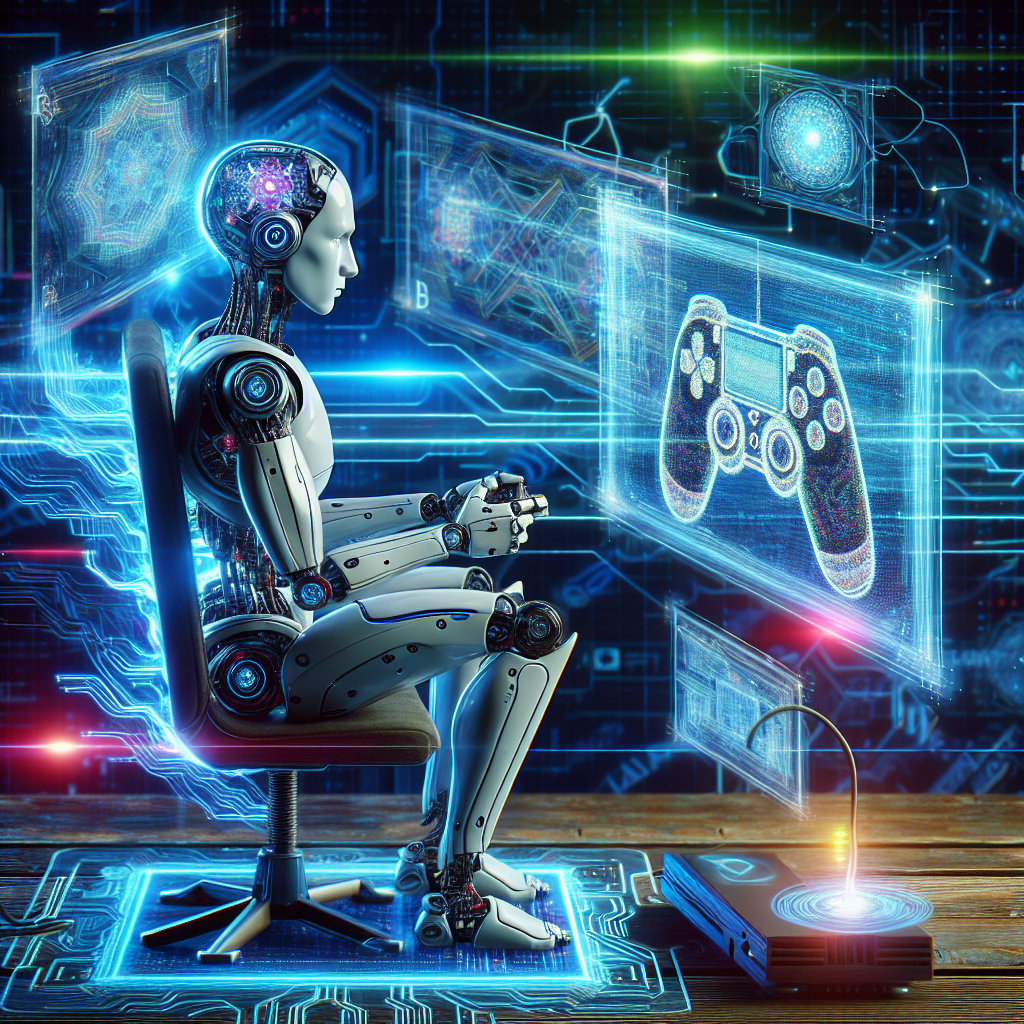Artificial Intelligence (AI) has been rapidly shaping the future of gaming in recent years, revolutionizing the way games are played and developed. From enhancing the player experience to creating more immersive worlds, AI has the potential to transform the gaming industry in ways we never imagined. In this article, we will explore the impact of AI on gaming and how it is shaping the future of the industry.
AI in gaming has come a long way since its inception. In the early days, AI was mainly used for creating non-player characters (NPCs) that could mimic human behavior to a certain extent. However, with advancements in technology, AI has evolved to be much more than just a tool for creating NPCs. Today, AI is being used in various aspects of gaming, from game design and development to player experience and in-game interactions.
One of the key ways AI is shaping the future of gaming is through procedural generation. Procedural generation is a technique used to create game content dynamically, based on a set of rules and algorithms. This allows developers to create vast and diverse worlds with minimal effort, saving time and resources. AI can be used to generate realistic landscapes, buildings, and characters, making games more immersive and engaging for players.
AI is also being used to improve player experience in games. For example, AI can be used to analyze player behavior and preferences to create personalized gaming experiences. This can include recommending games, levels, or challenges based on the player’s skill level and interests. AI can also be used to adjust difficulty levels in real-time, ensuring that players are always challenged but not overwhelmed. This can help keep players engaged and motivated to continue playing.
Another way AI is shaping the future of gaming is through the development of intelligent NPCs. AI-powered NPCs can adapt to player actions and make decisions based on the current game state. This can create more dynamic and challenging gameplay, as NPCs can learn from the player’s behavior and adjust their strategies accordingly. Intelligent NPCs can also enhance the storytelling in games, as they can react to the player’s choices and actions, creating a more immersive and interactive gaming experience.
AI is also being used to improve game design and development processes. For example, AI can be used to automate testing and debugging, helping developers identify and fix issues more quickly. AI can also be used to generate game levels, quests, and missions, reducing the time and effort required to create content. This can help developers focus on more creative aspects of game design, such as storytelling and world-building.
Overall, AI is transforming the gaming industry in profound ways, from creating more immersive worlds to enhancing player experience and improving game design processes. As technology continues to advance, we can expect AI to play an even greater role in shaping the future of gaming.
FAQs:
Q: How is AI used in gaming?
A: AI is used in gaming in various ways, including creating NPCs, procedural generation, improving player experience, developing intelligent NPCs, and enhancing game design and development processes.
Q: What are the benefits of using AI in gaming?
A: The benefits of using AI in gaming include creating more immersive worlds, enhancing player experience, improving game design processes, and developing intelligent NPCs that can adapt to player actions.
Q: Will AI replace human game developers?
A: While AI can automate certain aspects of game development, such as testing and debugging, it is unlikely to replace human game developers completely. Human creativity and innovation are still essential for creating engaging and immersive gaming experiences.
Q: How can players benefit from AI in gaming?
A: Players can benefit from AI in gaming by experiencing more personalized and dynamic gameplay, as well as more immersive and challenging worlds. AI can help create games that adapt to the player’s preferences and skill level, keeping them engaged and motivated to continue playing.
In conclusion, AI is shaping the future of gaming in profound ways, from creating more immersive worlds to enhancing player experience and improving game design processes. As technology continues to advance, we can expect AI to play an even greater role in transforming the gaming industry and creating new and exciting gaming experiences for players around the world.

